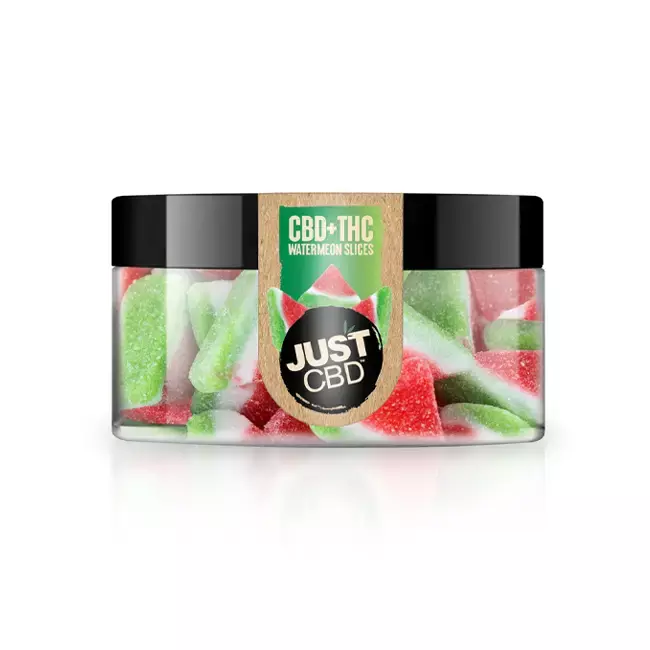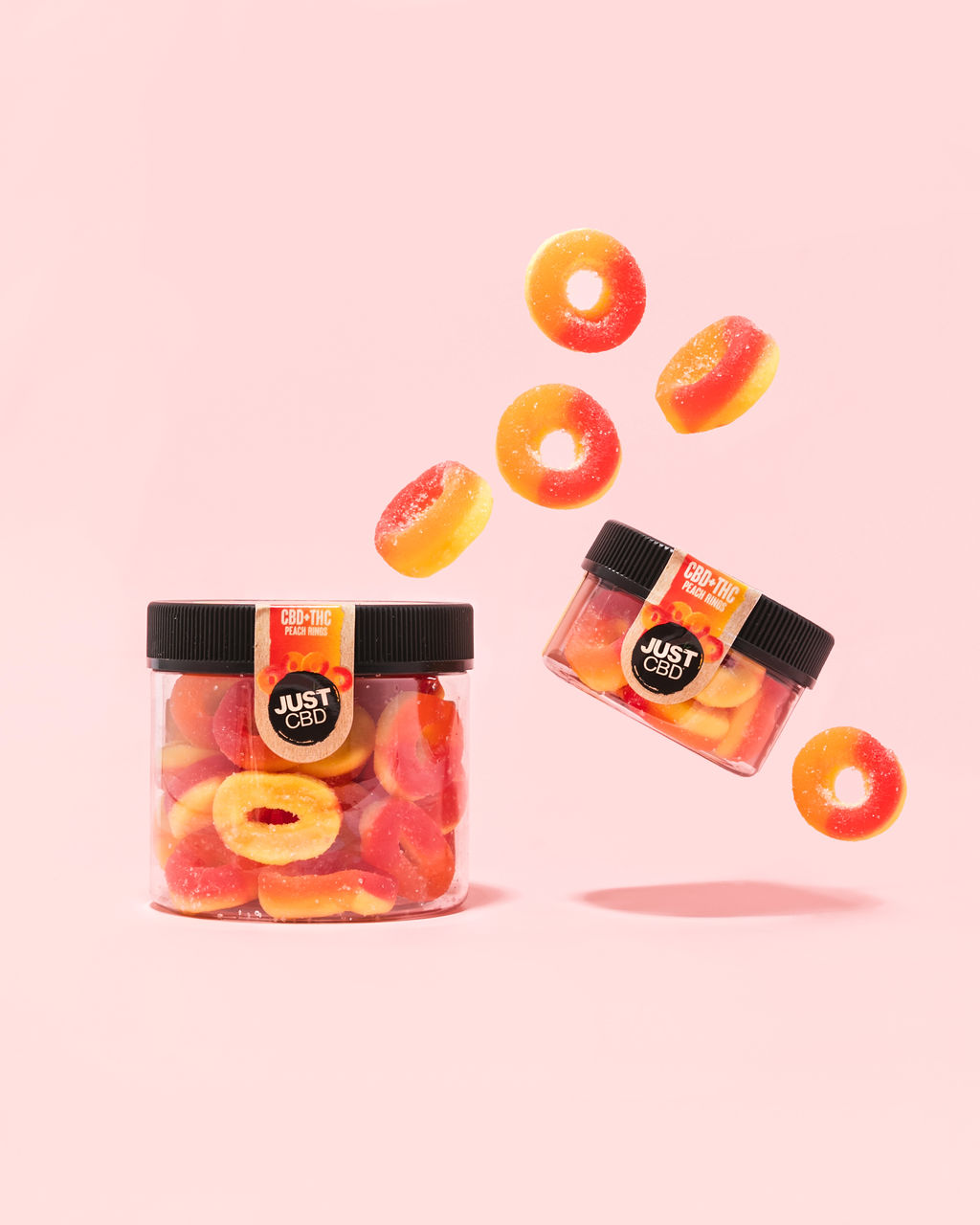Federal Law
Federal law in the United States governs a wide range of activities, including the production, distribution, and use of cannabis-derived products. Understanding the complexities of federal law surrounding CBD and THC is crucial for consumers navigating this evolving legal landscape.
Hemp-Derived CBD and THC
Federal law in the United States distinguishes between hemp-derived CBD and marijuana-derived CBD. The 2018 Farm Bill legalized hemp, defined as cannabis containing less than 0.3% THC, at the federal level. Hemp-derived CBD products containing less than 0.3% THC are generally legal under federal law.
Products derived from marijuana, which typically contain higher levels of THC, remain illegal under federal law. However, some states have legalized recreational or medicinal marijuana use, creating a complex interplay between state and federal laws.
The legality of CBD + THC gummies depends on the specific product’s composition and the relevant state laws. Gummies containing only hemp-derived CBD with less than 0.3% THC are generally legal under federal law but may be subject to state regulations. Gummies containing marijuana-derived CBD or higher levels of THC may be illegal under both federal and state law.
Marijuana-Derived CBD and THC
Federal law in the United States governs a wide range of activities, including the production, distribution, and use of cannabis-derived products. Understanding the complexities of federal law surrounding CBD and THC is crucial for consumers navigating this evolving legal landscape.
Federal law in the United States distinguishes between hemp-derived CBD and marijuana-derived CBD. The 2018 Farm Bill legalized hemp, defined as cannabis containing less than 0.3% THC, at the federal level. Hemp-derived CBD products containing less than 0.3% THC are generally legal under federal law.
Products derived from marijuana, which typically contain higher levels of THC, remain illegal under federal law. However, some states have legalized recreational or medicinal marijuana use, creating a complex interplay between state and federal laws.
The legality of CBD + THC gummies depends on the specific product’s composition and the relevant state laws. Gummies containing only hemp-derived CBD with less than 0.3% THC are generally legal under federal law but may be subject to state regulations. Gummies containing marijuana-derived CBD or higher levels of THC may be illegal under both federal and state law.
State Laws
State laws play a crucial role in determining the legality of CBD + THC gummies. While federal law provides a framework, individual states have the authority to enact their own regulations regarding cannabis-derived products.
Variations in Legality
State laws vary significantly in their approach to CBD and THC. Some states have adopted comprehensive legalization frameworks for both medical and recreational marijuana, while others maintain stricter prohibitions.
Within these varying legal landscapes, state laws may address specific aspects of CBD + THC gummies, such as potency limits, labeling requirements, sale restrictions, or age limitations.
CBD Gummies vs. Marijuana Edibles
State laws play a crucial role in determining the legality of CBD + THC gummies. While federal law provides a framework, individual states have the authority to enact their own regulations regarding cannabis-derived products.
State laws vary significantly in their approach to CBD and THC. Some states have adopted comprehensive legalization frameworks for both medical and recreational marijuana, while others maintain stricter prohibitions.
- Comprehensive Legalization: Some states have fully legalized both medical and recreational marijuana, allowing for the sale and use of products containing THC.
- Medical Marijuana Only: Other states have legalized marijuana for medical use, but prohibit recreational use.
- Limited CBD Laws: Some states allow for the sale and use of CBD products derived from hemp, as long as they contain less than 0.3% THC.
- Strict Prohibition: Certain states maintain strict prohibitions against all forms of marijuana, including CBD and THC products.
Within these varying legal landscapes, state laws may address specific aspects of CBD + THC gummies, such as potency limits, labeling requirements, sale restrictions, or age limitations.
Purchasing and Consumption Guidelines
The legal landscape surrounding cannabis-derived products is complex and constantly evolving. Understanding the interplay between federal law and state regulations is crucial for consumers wanting to navigate this landscape safely and legally.

Reputable Brands and Lab Testing

Navigating the legality of CBD + THC gummies requires a clear understanding of both federal and state laws. Hemp-derived CBD, containing less than 0.3% THC, is generally legal under federal law thanks to the 2018 Farm Bill. However, products derived from marijuana, which typically contain higher levels of THC, remain illegal at the federal level.
State laws play a crucial role in determining the legality of CBD + THC gummies. Some states have adopted comprehensive legalization frameworks for both medical and recreational marijuana, while others maintain stricter prohibitions. It’s essential to research your state’s specific regulations before purchasing or consuming any CBD + THC products.
When choosing CBD + THC gummies, prioritize reputable brands that conduct third-party lab testing. Reputable labs analyze the product’s potency, purity, and safety, ensuring it meets quality standards and accurately reflects its claimed ingredients.
Look for certificates of analysis (COAs) provided by the manufacturer. These documents outline the results of lab testing and provide transparency about the product’s composition.
Purchasing from trusted sources and prioritizing products backed by independent lab testing are crucial steps in ensuring a safe and legal CBD + THC experience.

Dosage and Administration
Understanding the legality of CBD + THC gummies requires navigating a complex web of federal and state laws. Hemp-derived CBD, containing less than 0.3% THC, is generally legal under federal law due to the 2018 Farm Bill. However, products derived from marijuana, typically with higher THC levels, remain illegal at the federal level.
State laws play a crucial role in determining the legality of these gummies. Some states have embraced comprehensive legalization for both medical and recreational marijuana, while others maintain stricter prohibitions. It’s vital to research your state’s specific regulations before purchasing or consuming any CBD + THC products.
When choosing CBD + THC gummies, prioritize reputable brands that conduct third-party lab testing. These labs analyze the product’s potency, purity, and safety, ensuring it meets quality standards and accurately reflects its claimed ingredients.
Look for certificates of analysis (COAs) provided by the manufacturer. COAs outline the results of lab testing and offer transparency about the product’s composition. Purchasing from trusted sources and prioritizing products backed by independent lab testing are crucial steps in ensuring a safe and legal CBD + THC experience.
Potential Interactions and Risks
Understanding the legality of CBD + THC gummies requires navigating a complex web of federal and state laws. Hemp-derived CBD, containing less than 0.3% THC, is generally legal under federal law due to the 2018 Farm Bill. However, products derived from marijuana, typically with higher THC levels, remain illegal at the federal level.
State laws play a crucial role in determining the legality of these gummies. Some states have embraced comprehensive legalization for both medical and recreational marijuana, while others maintain stricter prohibitions. It’s vital to research your state’s specific regulations before purchasing or consuming any CBD + THC products.
When choosing CBD + THC gummies, prioritize reputable brands that conduct third-party lab testing. These labs analyze the product’s potency, purity, and safety, ensuring it meets quality standards and accurately reflects its claimed ingredients.
Look for certificates of analysis (COAs) provided by the manufacturer. COAs outline the results of lab testing and offer transparency about the product’s composition. Purchasing from trusted sources and prioritizing products backed by independent lab testing are crucial steps in ensuring a safe and legal CBD + THC experience.
Future Outlook**
As we look ahead to 2025, the landscape surrounding CBD and THC continues to evolve rapidly. New research, shifting public opinion, and legislative changes will undoubtedly shape the future of these cannabis-derived products.
Evolving Regulations
As we look ahead to 2025, the landscape surrounding CBD and THC continues to evolve rapidly. New research, shifting public opinion, and legislative changes will undoubtedly shape the future of these cannabis-derived products.
Some key trends to watch include:
- Continued Expansion of Legalization: The legalization of recreational marijuana is spreading across the United States, with more states expected to join the growing list.
- Greater Regulation and Standardization: As legalization expands, expect to see more comprehensive regulations and standardization efforts aimed at ensuring product safety, quality, and consistency.
- Increased Scientific Research: Ongoing research on the therapeutic potential of CBD and THC is likely to uncover new applications and deepen our understanding of their effects on the body.
- Product Innovation: New and innovative CBD + THC products are constantly emerging, catering to a wider range of consumer needs and preferences.
Research and Development Trends
As we look ahead to 2025, the landscape surrounding CBD and THC continues to evolve rapidly. New research, shifting public opinion, and legislative changes will undoubtedly shape the future of these cannabis-derived products.
Some key trends to watch include:
- Continued Expansion of Legalization: The legalization of recreational marijuana is spreading across the United States, with more states expected to join the growing list.
- Greater Regulation and Standardization: As legalization expands, expect to see more comprehensive regulations and standardization efforts aimed at ensuring product safety, quality, and consistency.
- Increased Scientific Research: Ongoing research on the therapeutic potential of CBD and THC is likely to uncover new applications and deepen our understanding of their effects on the body.
- Product Innovation: New and innovative CBD + THC products are constantly emerging, catering to a wider range of consumer needs and preferences.
Get premium THC gummies with CBD
